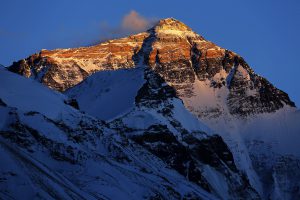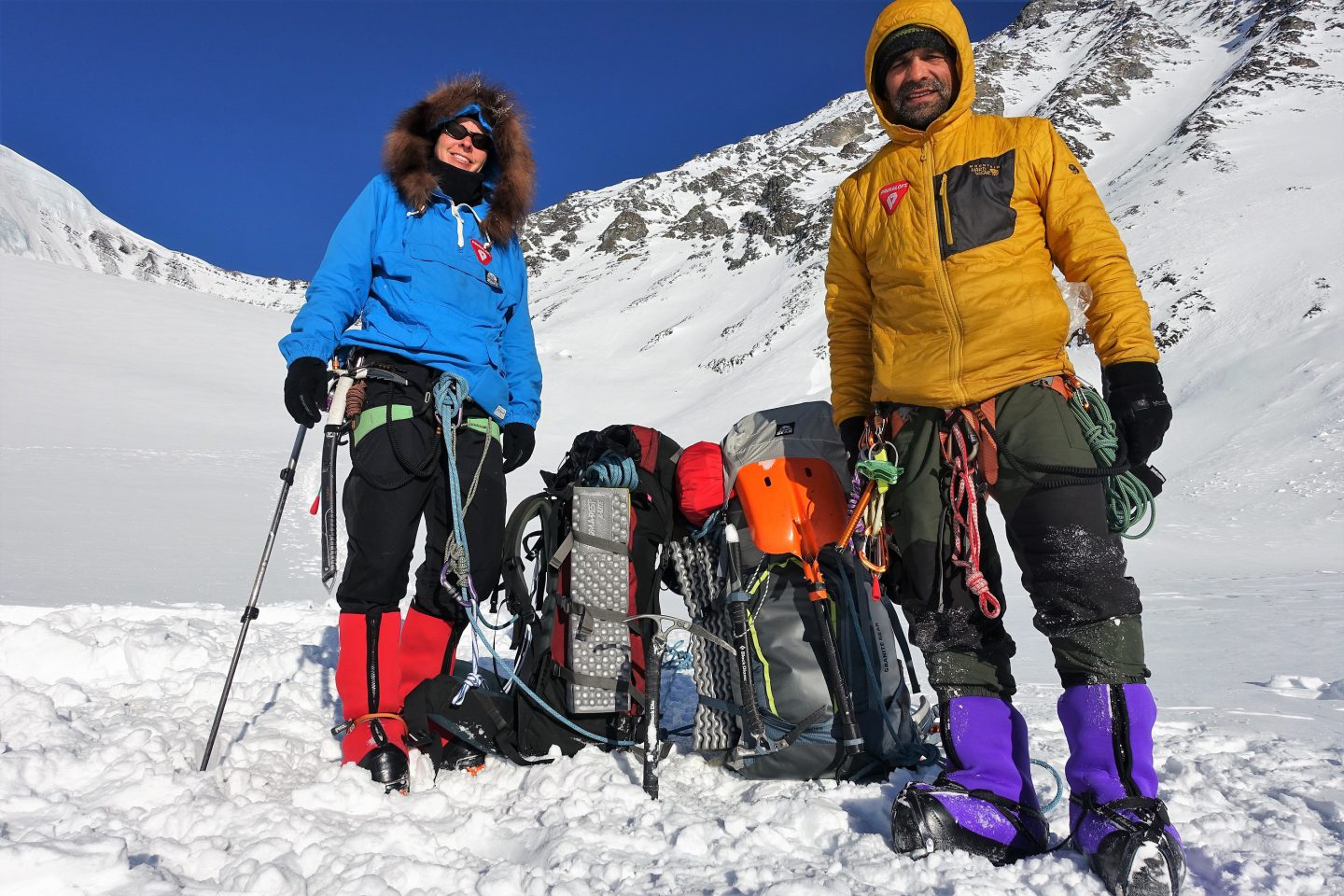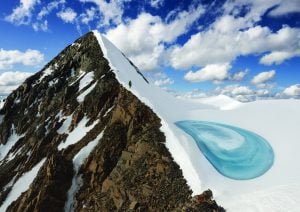
Exploration
The pull of Everest
A century after a Canadian was instrumental in charting the world's highest peak, a fellow Canadian reflects on the magnetism of Everest
- 4083 words
- 17 minutes
This article is over 5 years old and may contain outdated information.
Exploration

Crevasses and a lack of good landing spots at lower elevations have forced Lonnie Dupre and Pascale Marceau to abandon their attempt to complete the first winter ascent of Mount Lucania, the third-highest peak in Canada at 5,226 metres.
The two climbers have changed course and will now attempt to summit Mount Steele, the country’s fifth-highest peak at 5,067 metres. “They have changed their objective from Lucania to Steele,” said Mike Schmidt, co-chair of The Royal Canadian Geographical Society’s expeditions committee, who is in Yukon assisting with the expedition, in an email. “Apparently, the crevasses and landing location would have made it impossible to climb Lucania. This is likely due to their altitude, and the up-and-down changes that it would require to get to the starting point of their previous route.”
In a blog post yesterday, Dupre and Marceau’s support team described how the two climbers had moved their gear almost 1,500 metres to an advance base camp to begin their ascent of Mount Steele: “In addition to this haul, they completed one shuttle up towards the ridge, maneuvering crevasses along the way and spotting new ones up top. The two are happy with what they accomplished so far. They’re still fighting pesky altitude headaches as they acclimate to the ascent, now nestled at 3069m/10067ft.”
Dupre and Marceau began their Lucania — A Frigid First expedition last week, flying from Burwash Landing airport to the icefields near the base of Mount Lucania in the northwest corner of Kluane National Park and Reserve. From there, they had planned to ski to the base of the mountain before beginning their ascent.
Storms and poor weather on and around the mountain had delayed the duo’s original departure date of Jan. 12. “It’s always a tough decision, but there was no sense in flying in only to be grounded in our tent for a few days,” said Marceau last week before the expedition began. “It would have been a poor way to start — depleting our supplies and wearing ourselves down. We believe we have a real chance of success with this and want to put all the chips on our side.”
Marceau said she and Dupre were looking forward to leaving all the organizational details behind and finally hitting the trail. “The only thing we are really worried about is having good visibility, which would mean not having to route-find in blowing snow,” she said. “We can deal with cold, altitude and deep snow, but we need visibility to move forward. Of course, we also think about things like whether we’re fit enough, if we’ve made good decisions about our gear and if the avalanche risk is going to be manageable, but the reality is we do feel ready and need to trust our decisions and experience.”
To learn more about Marceau and Dupre’s expedition, which is funded in part by The Royal Canadian Geographical Society, read Marceau’s take below on why they planned to climb Mount Lucania.
Are you passionate about Canadian geography?
You can support Canadian Geographic in 3 ways:

Exploration
A century after a Canadian was instrumental in charting the world's highest peak, a fellow Canadian reflects on the magnetism of Everest

Exploration
In 1992, a team backed by The Royal Canadian Geographical Society became the first to accurately measure the height of Mount Logan, Canada’s highest peak

Environment
They sustain us, enrich our lives and inspire us

Travel
An insider’s account of the modern-day gold rush